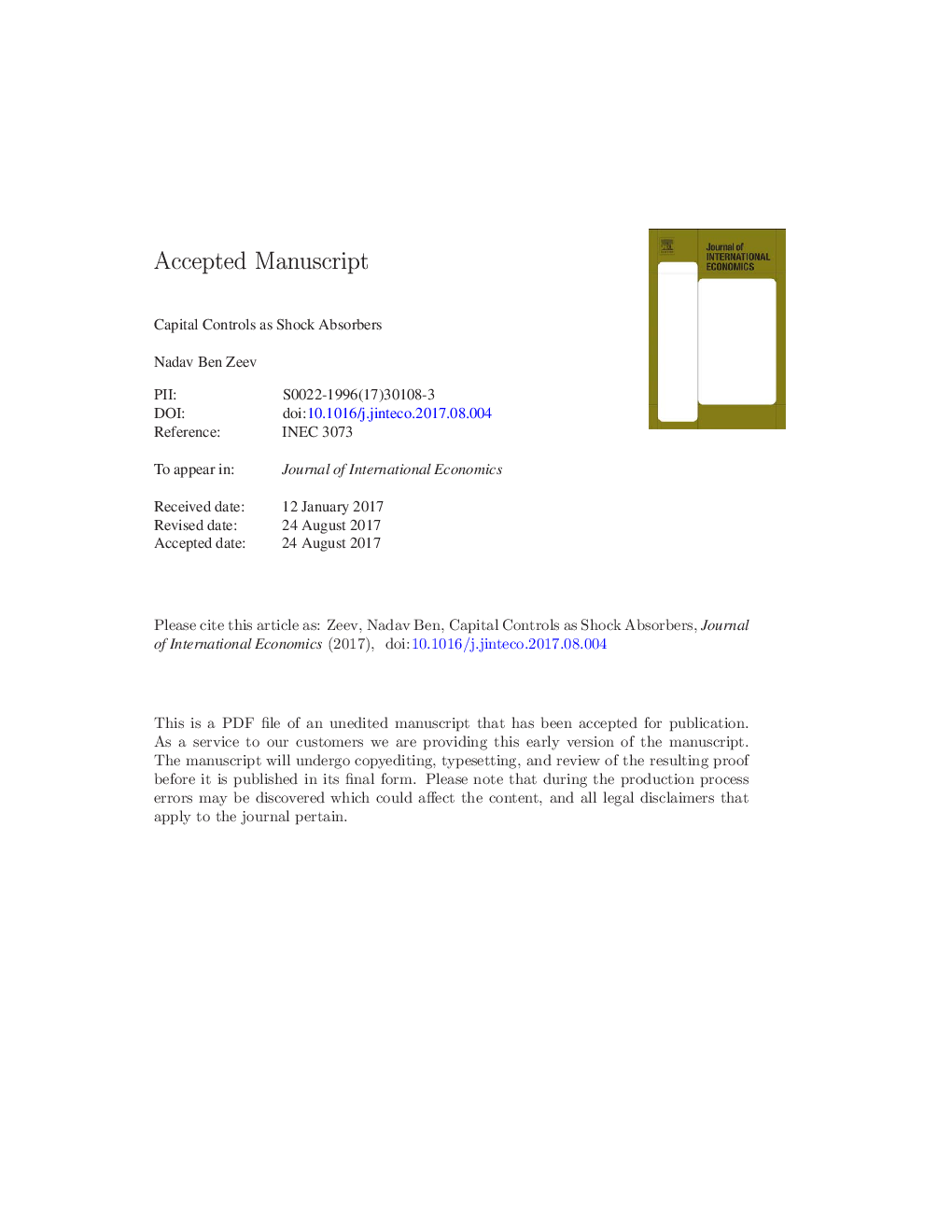| Article ID | Journal | Published Year | Pages | File Type |
|---|---|---|---|---|
| 5100859 | Journal of International Economics | 2017 | 65 Pages |
Abstract
The recent global financial crisis has resuscitated the debate on the relevance of capital controls as effective policy instruments. This paper contributes to this debate by studying the shock-absorbing capacity of capital controls. Using a recently developed capital control dataset for a panel of 33 emerging market economies, I show that output in economies with stricter capital inflow controls responds significantly less to global credit supply shocks, whereas capital outflow controls have no significant shock-absorbing capacity. Leverage is significantly lower in economies enacting stricter capital inflow controls, suggesting that financial frictions play a role in driving the shock-absorbing capacity of inflow controls.
Related Topics
Social Sciences and Humanities
Economics, Econometrics and Finance
Economics and Econometrics
Authors
Nadav Ben Zeev,
